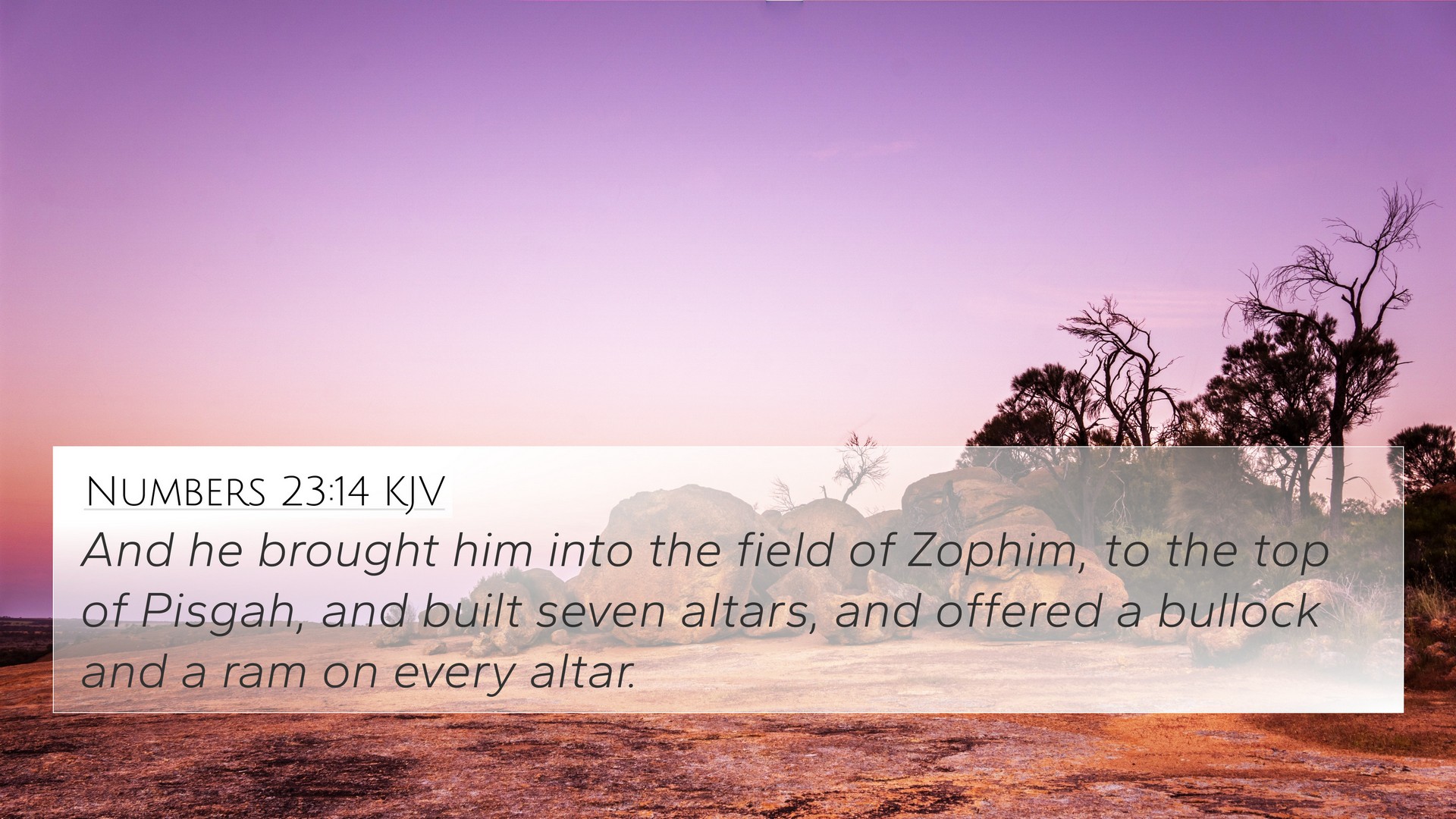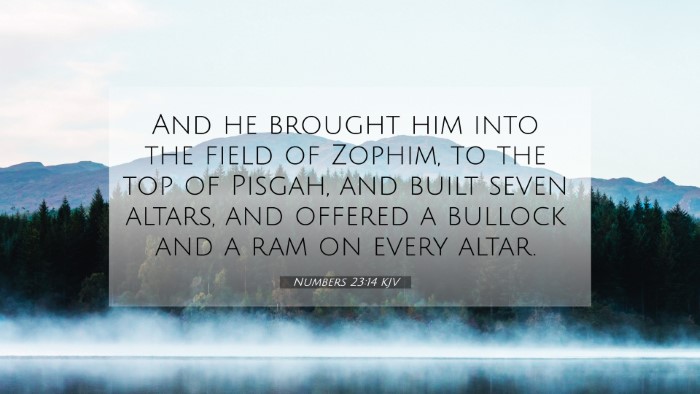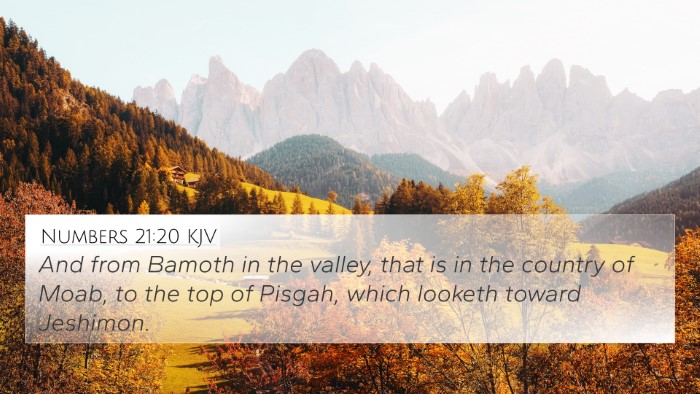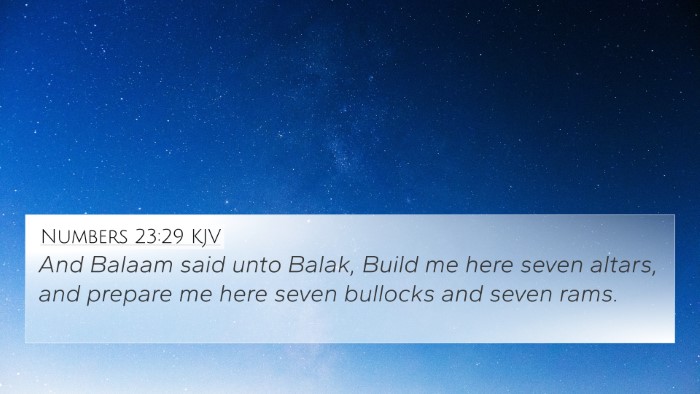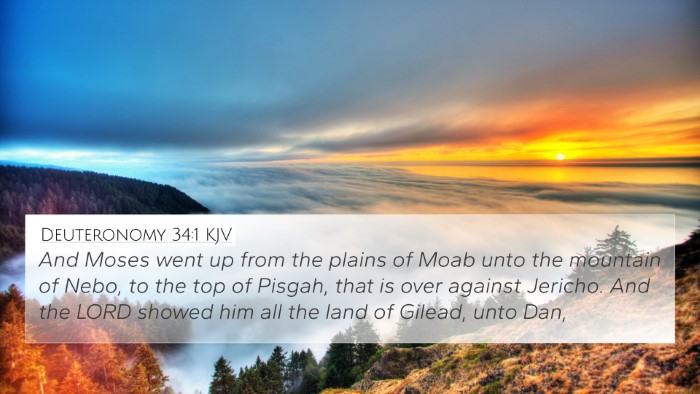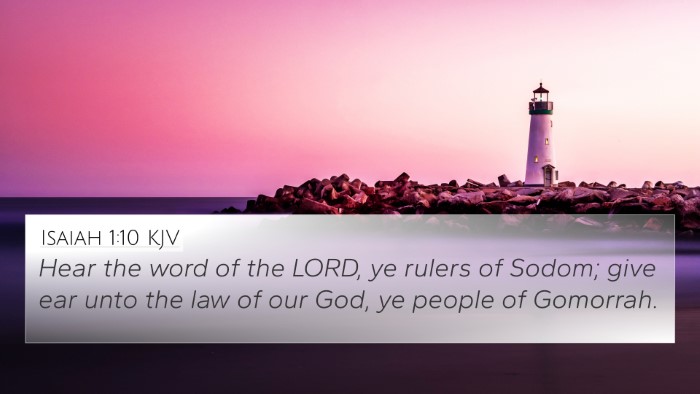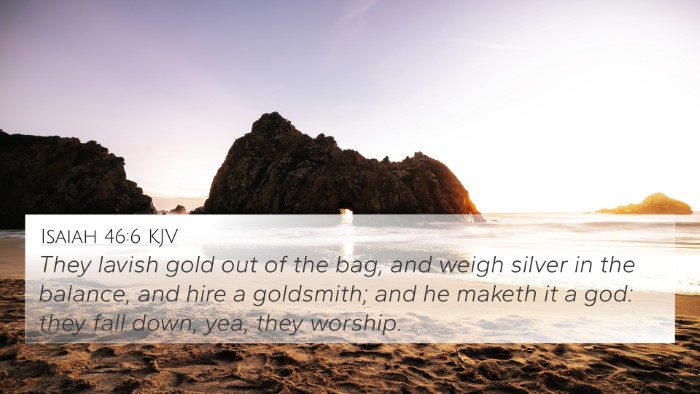Understanding Numbers 23:14
Numbers 23:14 states: "And he brought him to the field of Zophim, to the top of Pisgah, and built seven altars, and offered a bullock and a ram on the altar." This verse is a pivotal moment in the narrative of Balaam, a prophet brought by Balak, the king of Moab, to curse the Israelites. However, the Lord intervenes, leading to deeper insights into His nature and purpose.
Summary of the Verse's Meaning
The essence of this verse lies in its illustration of the conflict between divine sovereignty and human intentions. Despite Balak's desire to curse Israel, God’s plan prevails. The act of building seven altars and offering sacrifices denotes a serious ritual intended to invoke divine favor, which Balaam cannot fulfill against God’s will.
Insights from Public Domain Commentaries
-
Matthew Henry:
Henry emphasizes the importance of the location and the rituals performed by Balaam. The number seven symbolizes completeness in biblical terms, indicating that Balaam was earnest in his attempts to gain God's attention. However, the underlying message is that God cannot be manipulated for human agendas.
-
Albert Barnes:
Barnes provides insight into the significance of altars in ancient Israelite culture. The setting atop Pisgah is symbolic of the heightened spiritual awareness as Balaam prepares to utter his curses. Yet, this serves to highlight God's ultimate authority and the futility of opposing His will.
-
Adam Clarke:
Clarke notes the importance of Balaam's preparations. The sacrifices reflect a traditional approach to seeking divine approval, which ultimately points to the deeper truth that God’s will stands apart from human rituals and desires. Clarke also suggests the connection to Israel's future as glimpsed through Balaam's eyes.
Bible Cross References
This verse can be cross-referenced with several other biblical texts that provide deeper connections and understanding:
- Deuteronomy 23:4-5 - God turns curses into blessings.
- Romans 8:31 - If God is for us, who can be against us?
- 1 Samuel 15:29 - God does not lie or change His mind.
- Isaiah 54:17 - No weapon formed against you shall prosper.
- Galatians 3:13 - Christ redeemed us from the curse of the law.
- Matthew 5:10 - Blessed are those who are persecuted for righteousness' sake.
- James 4:7 - Resist the devil, and he will flee from you.
Thematic Connections
This verse demonstrates several themes prevalent throughout the Bible:
- The sovereignty of God over human intentions.
- The futility of opposing God's will through ritualistic practices.
- The blessing of Israel in God's covenant promises.
- The use of altars as focal points for spiritual encounters.
- Divine authority in the face of opposition.
Conclusion
In summary, Numbers 23:14 serves as a rich illustration of the complexities within biblical narratives, highlighting the relationship between divine authority and human efforts to manipulate circumstances. The expansive commentary from figures like Matthew Henry, Albert Barnes, and Adam Clarke enhances our understanding, reminding us of the critical theme of God's unwavering sovereignty. This verse, alongside its cross-references, deepens our comprehension of God's character and His plans for His people.
